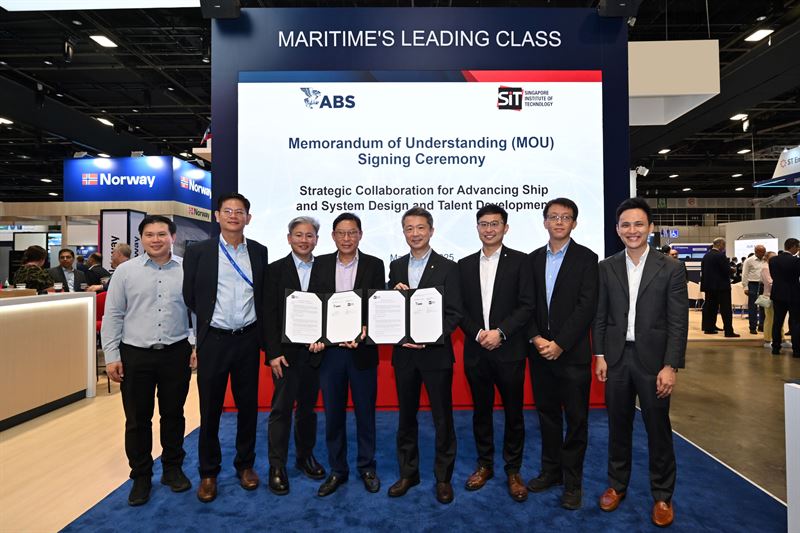In a period of global upheaval, both geopolitical but also economic,
In a period of global upheaval, both geopolitical but also economic, Evangelos Marinakis, founder and chairman of Capital Maritime & Trading Corp was the keynote speaker during the official lunch at the 19th Annual Capital Link International Shipping Forum at New York’s Metropolitan Club on the 31st of March 2025.
His audience included top banking executives, charterers, ship-owners, stock market executives from both NYSE and Nasdaq, financial analysts and important figures from shipping such as Semiramis Paliou (Diana Shipping Inc.), Poly Hadjioannou (Safe Bulkers), but also investment banking executives such as Wiley Griffiths (Morgan Stanley), Evan Cohen (First Citizens Bank) and Edward Horton (Seward & Kissel LLP). There were also international executives of the shipping industry such as Kristian Sorensen (BW LPG), Richard Tyrrell (Cool Company), and Carlos Balestra di Mottola (d’Amico International).
Addressing an audience of executives from shipping and finance, many of whom he knows since the 1990s, Evangelos Marinakis began his speech by noting that “I’m happy to be here today with all of you. I saw many friends whom I hadn’t seen in quite some time, friends with whom we started out—let’s say—together back in the early ’90s. So, it was a pleasant surprise to see them
Opportunities for shipping
Evangelos Marinakis stressed from the outset that after the US elections and the new administration under Donald Trump, the international landscape has changed, stressing that these changes can make the whole situation more complex, but at the same time they create opportunities that can benefit shipping. Therefore, he reminded that in such conditions «at the end of the day» shipping wins, provided that entrepreneurs take advantage of the opportunities that are offered: «Since the U.S. elections and the beginning of Mr. Trump’s administration in January, we’ve seen many changes—numerous announcements and discussions on various global matters—which have made our lives more complicated, but at the same time, much more interesting. In shipping, we often benefit from geopolitical events. When there’s uncertainty, I believe that, at the end of the day, it tends to work in shipping’s favor—perhaps in the short term, but certainly in the long term, we often see some benefits. Of course, it all depends on how entrepreneurs react—how they analyze the situation and form a strategy.”
Such restrictions are not sustainable in the long run
Evangelos Marinakis referred to the whole issue around the US government’s decision to impose tariffs on imported goods. He acknowledged that in the short run there might be negative consequences but his estimate was that such policies cannot be maintained in the long run: “In my opinion, we’ll face many challenges ahead, especially regarding tariffs. The current discussions we’re following are no longer limited to China; now there are tariffs affecting the EU and other countries as well. All of this has a direct impact on shipping because it affects the transportation of goods. In the short term, I expect a negative impact, but I don’t believe such restrictions are sustainable in the long run.”
The question of levies on Chinese-built tonnage
The founder and chairman of Capital Maritime & Trade Corp then moved to the recent announcements of the US government about high extra levies on Chinese-built ships, given the tonnage that such a measure might affect: “Another issue that concerns us is the future of Chinese-built tonnage. We’re not only talking about vessels owned by Chinese companies. In the last 10 to 15 years, due to the way the shipbuilding industry has developed, shipowners often had no choice but to consider building in China—for three main reasons: First, due to the capacity; second, because of competitive pricing; and third, because Chinese shipyards have improved their quality significantly. In many cases, their standards are approaching those of Korean or even Japanese yards. As a result, a large number of ships—owned by both listed and private companies worldwide—have been built in China.
Currently, we’re seeing charterers—even in short or period charter negotiations—trying to avoid Chinese-built tonnage. Some do this to negotiate better rates; others are genuinely concerned about the risks, particularly when cargoes are being transported in and out of the United States. They simply don’t want to take the risk.”
Consequently, Evangelos Marinakis warned that, “if this trend continues, we will end up with a two-tier market, and ultimately, the consumer will bear the cost. Delivered commodity prices will rise, especially for goods entering or leaving the U.S. on non-Chinese-built vessels. I believe this situation could last longer than any of us would like to think.”
Content Original Link:
Read Full article form Original Source OIKONOMIKOS TAXYDROMOS
" target="_blank">
Read Full article form Original Source OIKONOMIKOS TAXYDROMOS



































































